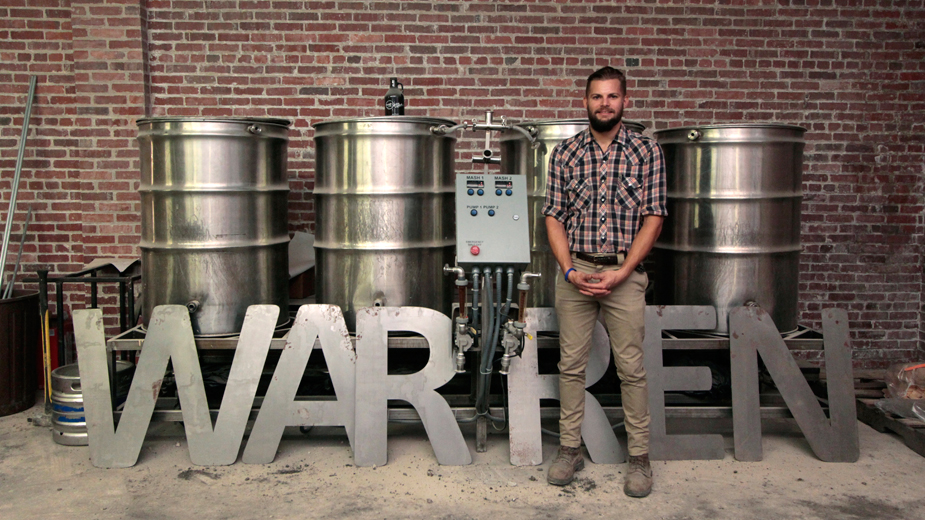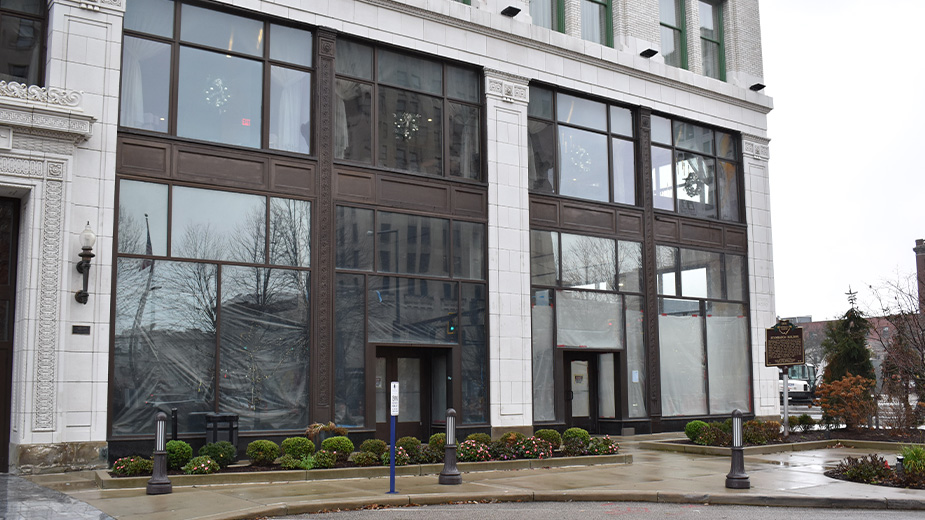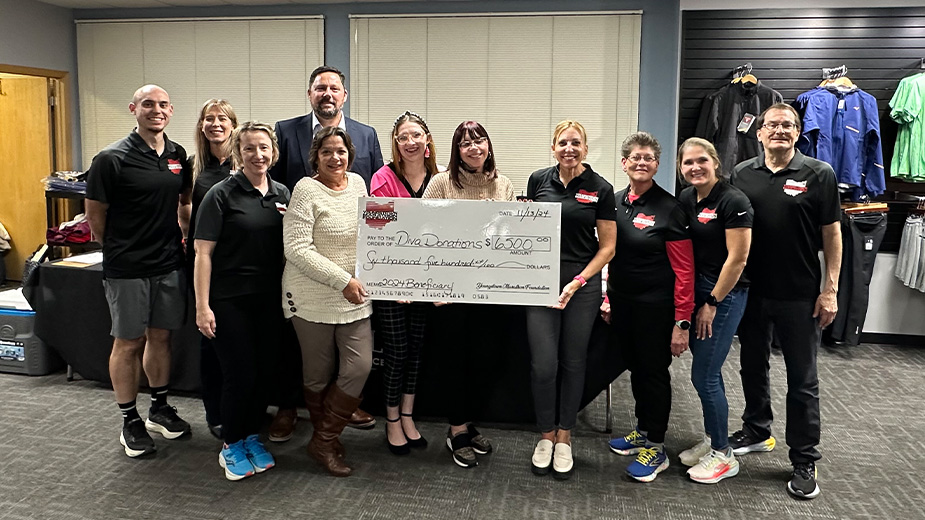Their Thirst for Craft Beer Ferments Business Dreams
YOUNGSTOWN, Ohio – Starting a craft brewery requires more than a basic knowledge of how to brew beer and the road from craft beer aficionado to owner-operator has many barriers.
So Adam Keck and Ira Gerhart have found as they set out on their journeys. Keck owns Modern Methods Brewing Co. in Warren. Gerhart is co-owner of Noble Creature Cask House in Youngstown.
Both entrepreneurs will open their breweries this fall, and both are realizing ambitions that began years ago when they picked up their first bottles of craft beer.
Ohio, which ranks 12th in the nation in the number of craft breweries, saw an increase to 177 in 2016 from 45 in 2011. Small and independent craft brewers account for more than 12% of the domestic beer market, according to the Brewers Association.
Modern Methods will be the only craft brewery to operate in Trumbull County when it opens, becoming the first brewery in Warren since 1881.
“I’ve been planning this in one way or another for four or five years,” Keck says as he gestures inside what will soon be the Modern Methods Brewing Co. Keck’s interest began in 2010 when, on a whim one night, he picked out a six-pack of Great Lakes Burning River Pale Ale on his way home from work.
“I had bought craft beer before, but I didn’t quite understand it until I drank that beer,” Keck recalls.
He quickly became a regular craft beer drinker, seeking new varieties at the Havana House, Cork & Cap Bottle Shop & Tasting Room, Chalet Premier – any shop that stocked it. But he didn’t stop there.
Keck soon began brewing his own. With his father and brother, he starting on a kitchen stove before moving to a more advanced system in the garage.
Consumed with brewing, he made 50 gallons of beer a month. He tested recipes, devised his own and asked anyone he could persuade to try the results.
Over the past two years he’s traveled to breweries where he’s talked to any brew master willing to discuss the craft. “Those in the craft brewery business are enormously helpful,” he says. “Anybody I’ve ever reached out to has been very forthcoming with information and advice.”
An accredited education in chemistry or the brewing sciences isn’t necessary to enter the beer business, Keck says. Attention to detail, consistency, creativity and a basic knowledge of how beer is made are musts.
“It’s really a blend of art and science,” he says. “You can give 10 different brewers the same recipe and it’s going to come out differently.”
Understanding the basics of running a business is as critical as understanding how to brew, Keck adds. “Know your way around accounting software, understand a general ledger and have some understanding of how to organize a company.”
Modern Methods will open in the warehouse of the Tech Belt Energy Innovation Center off David Grohl Alley in downtown Warren. “Luckily for us, TBEIC, with their original renovation and investment, updated a lot of the utilities,” Keck said. “That was a cost that we would have had to eat.”
Breweries come in all sizes. What are known in the industry as nanobreweries typically produce in batches of three or fewer barrels at a time. That might equal an investment of $25,000 to $50,000, Keck says. “The other strategy is to do a multimillion dollar project where you have a 15-barrel steam-jacketed brew house.”
Modern Methods falls somewhere in between, Keck says. During the planning stages, he incorporated as an LLC and worked with an attorney to create an investment structure. Keck has 22 investors, each making a minimum investment of $5,000. Keck hopes to raise $300,000 before the grand opening. “We’re currently near 70% of that goal,” he reports.
He plans to have four flagship beers available year-round – “That will cover our hoppy beer, our dark beer, our wheat bear and our blue-collar, light, easy-drinking lager,” Keck says – with Modern Methods’ other 12 taps reserved for experimental beers.
And Keck hopes to attract everyone from hipsters to baby boomers – anyone who enjoys beer and the city life. “That’s the big bet. That we can actually help change the culture to where people prefer to come to downtown Warren,” he says.
As he stands in the middle of the former Butler Memorial Presbyterian Church in Youngstown’s Smoky Hollow, Ira Gerhart tells how he came to open a brewery. He quickly recalls when he tried his first craft beer – Ommegang Rare Vos, a Belgian ale – at a party years ago. “I still remember taking a sip of that,” he says. “I had no idea beer could taste like that.”
By 2010, he was brewing beer at home. “After that I thought, ‘I’m going to open a brewery somewhere.’ ”
Gerhart, who grew up in Butler, Pa., met his wife, Marcy, in Edinboro, Pa., before she attended Youngstown State University. He soon started traveling to visit her.
“We fell in love with Youngstown and bought our first house here on the North Side in 2012,” he says. The couple looked throughout the city for the right spot to house their brewery before settling on the former church, which they are leasing from the Cassese family who operate the MVR nearby. The couple plan to open Noble Creature Cask House in September.
The wealth of information on the internet can give any would-be brewer a good start, Gerhart says. Home-brew operations can also help sharpen skills and improve understanding. Both are enough to give most people the base of knowledge, he says, but scaling up can pose problems.
“It’s difficult for many home brewers to transition to brewing on a commercial scale,” Gerhart explains. “You have to tweak your recipes a little bit, and there’s a lot more engineering involved. Understanding glycol chillers, cold rooms, tap lines and the basics of running a business can quickly complicate things for amateurs.”

Pictured: Ira Gerhart, co-owner of Noble Creature Cask House.
Starting a brewery is as expensive as the brewer makes it, he continues. “We’re doing it on a budget and we’ve collected the various necessary pieces over years,” Gerhart says. “But you could easily put $500,000 in a project like this. We’re way down from that.”
Anyone who brews beer for sale must apply for a brewer’s notice with the Alcohol and Tobacco Tax and Trade Bureau, a process that can prove lengthy.
“It took a long time getting all that information together because you have to have your place, the financials, all of the equipment you’ll be using,” Gerhart says. “You pretty much have to do everything ahead of time before you can even fill out the application.”
It would have been easier to open a brewery in a warehouse or some other accessible property, Gerhart adds, but he and his wife love the church site. They’re doing as much of the work on their own as they can. Marcy and a friend plan to paint murals that depict scenes of old Youngstown. Gerhart, who studied metalsmithing in college, is doing the fabrication work.
The couple plan to make the tables and the bar countertop from the church’s original flooring. “We’re trying to keep the old pews and cut them up and turn them into booths,” Gerhart says. He estimates that the maximum occupancy will be 75 inside with room for 25 more in the outdoor seating.
Gerhart is making extensive use of barrel aging, a technique that gives beer its flavor. The use of wood barrels in beer brewing is not new, but it fell out of favor after Prohibition when stainless steel containers began appearing.
“Typically, you’re aging in wine barrels for a extended period of time, and you get micro-oxygenation through the wood,” he says. Gerhart hopes the varieties of beers he produces will attract some wine lovers as well as the “hardcore beer geeks,” as he describes them.
Youngstown State is next door to the brewery, and Gerhart expects that Noble Creature could become an off-campus watering hole. “I think faculty, young professionals and beer connoisseurs,” he says.
Pictured at top: Adam Keck plans to open his craft brewery in downtown Warren this fall.
Copyright 2024 The Business Journal, Youngstown, Ohio.



